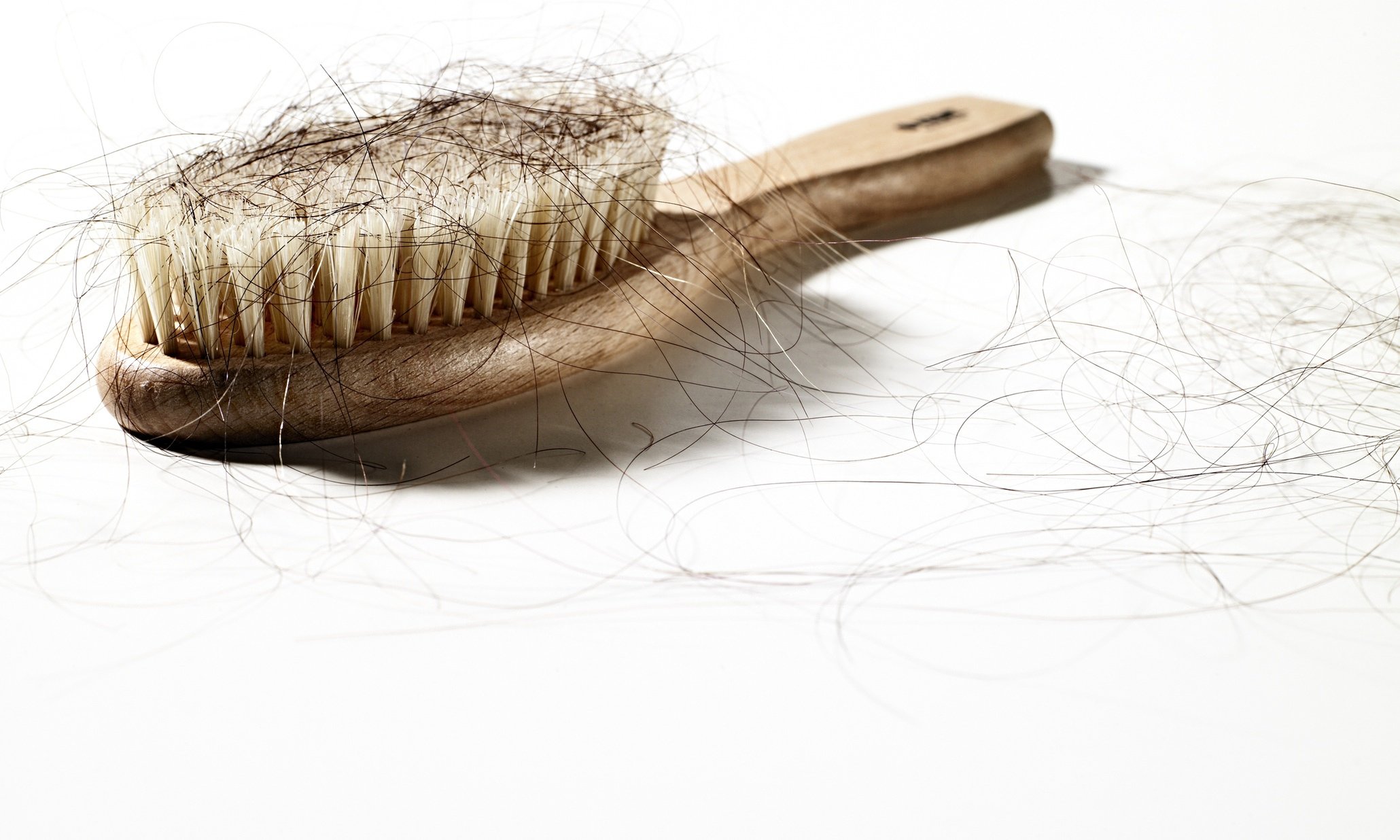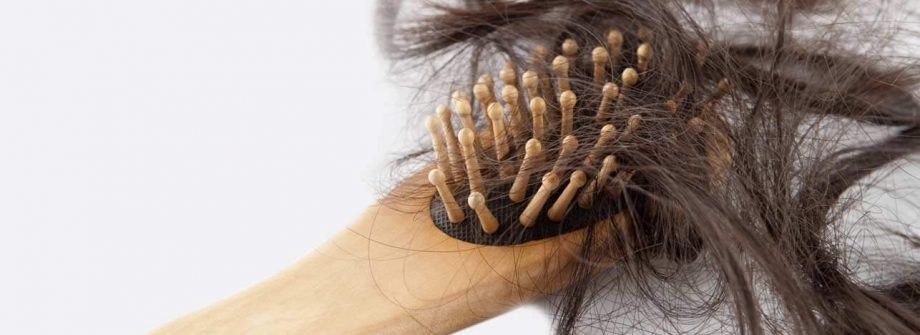Physical stress
It may seem weird, but even any kind of physical trauma such as severe illness or car accident can cause temporary hair loss. Physical stress can trigger telogen effluvium which is a type of hair loss. Every hair on our heads has natural life cycle with two phases, but when we have really stressful event in our lives, it can affect and shock the hair cycle, causing activation of second phase of hair cycle which includes hair loss. It should be mentioned, that hair loss usually occurs 3 to 6 months after the trauma. In this case you do not have to worry about your hair loss, because as your body recovers, the hair will grow back.
Pregnancy
Pregnancy is one of examples how physical stress can affect our hair, their growing and falling out. Of course, hair loss during pregnancy is due to hormones as well, but pregnancy-related hair loss is more common after baby birth rather than during pregnancy. If you are experiencing the hair loss, you do not have to worry about their regrowth, because they will grow back in a couple of months.
Too much vitamin A
We all know that vitamins are important and necessary for our body health, but if we overdose them, we can cause different health problems. Overdosing of vitamin A-containing supplements or medications can cause the hair loss. Fortunately, this is a reversible problem, because once usage of excess vitamin A is interrupted, the hair grows back normally.
Lack of protein
If we do not consume enough protein in our diet, our bodies ration protein by slowing down the hair growth. Hair loss because of protein deficiency usually occurs about 2 to 3 months after protein lack. There are a lot of great sources of protein, for example, meat, fish and eggs. If you are a vegetarian or vegan, you have to consider other protein sources.
Male pattern baldness
About 2 to 3 men after age of 60 experience hair loss, and usually it is because of male pattern baldness. This type of hair loss is caused by male sex hormones and a combo of genes. Male pattern baldness manifests in hair back off, leaving an M-shape hairline. If you have such hair loss problem, you can try some creams like minoxidil or oral medications like finasteride which can stop the hair loss or even stimulate some to grow. If creams and medications do not offer desired results, you can consider a surgery of transplantation or grafting of hair.
Heredity
Female pattern hair loss which is called androgenic or androgenetic alopecia is female version of male pattern baldness. If women of your family started to lose the hair at early age, there is a possibility that you will lose your hair at early age as well. Women usually do not have receding hairline, but noticeable thinning of hair. Like men, women may try minoxidil to improve the hair growth or maintain the hair they have.
Female hormones
Just as pregnancy changes of female hormones can cause the hair loss, for example, usage of birth-control pills. Changes in the hormonal balance which usually occurs during menopause may also cause the hair loss. Female hormones activate androgen receptors on the scalp, hair follicles stay smaller and the hair is falling out. If you are using birth-control pills and you have hair loss, talk to your doctor about other birth control alternatives.
Emotional stress
Emotional stress is not so powerful as physical stress for hair loss, but it can cause the hair loss in cases of severe emotional stress, for example, divorce, death or other emotionally severe event. Actually emotional stress does not precipitate the hair loss, but exacerbates a problem which is already there. This kind of hair loss is reversible just as hair loss due to physical stress – you just have to go through this emotional stress by reducing stress and anxiety, doing physical exercises, trying talk therapy or getting more support.
Anemia
One from 10 women in age from 20 to 49 years suffers from anemia because of iron deficiency which is easily fixable cause of hair loss. Other symptoms of anemia are fatigue, headaches, dizziness, pale skin and cold hands and feet. Taking of simple iron-containing supplement should correct the problem.
Hypothyroidism
Hypothyroidism means underactive thyroid gland. Thyroid gland which is located in our necks produces hormones which are responsible for metabolism, growth and development. In cases when it is not producing enough hormones, hair loss problems become aggravated. Taking of synthetic thyroid medications should take care of this problem. Fortunately, once your hormone levels return to normal, your hair should grow back.
Vitamin B deficiency
Like deficiency of other vitamins low levels of vitamin B can cause the hair loss as well. Taking supplements which contain vitamin B should resolve the problem. Dietary changes are important as well – eat food which is rich with natural vitamin B, for example, meat, fish, starchy vegetables, non-citrus fruits, as well as avocados and nuts.
Autoimmune-related hair loss
This problem is called alopecia areata and it is a result of an overactive immune system. In case of this disease body gets confused and perceives the hair as foreign, getting rid of it. In this case steroid injections are the best treatment, but usage of such drugs as Rogaine may also help. Unfortunately, this disease is unpredictable, so the hair can grow back and then fall out again.
Lupus
Lupus is another autoimmune disease which can cause the hair loss – overzealous cells of immune system attack the hair. Unfortunately, in case of lupus the hair does not grow back. If the hair loss is slow, you can try new hairstyle to hide the damages.
Dramatic weight loss
Sudden weight loss is a form of physical trauma which can result in thinning of hair. You can lose your hair even the weight loss is ultimately good for you. Often dramatic weight loss is connected with sudden loss of vitamins and minerals which are responsible for hair growth. If you suffer from such eating disorders as anorexia or bulimia, hair loss is natural reaction of the body. Do not lose your weight suddenly and dramatically, otherwise you will have over 6 months period of hair loss. After this period the hair usually grows back.
Chemotherapy
Some of drugs which are used to combat the cancer can also cause the hair loss. It is not a secret, that chemotherapy is like a nuclear bomb which destroys rapidly dividing cells. Not only cancer has rapidly dividing cells, but the hair as well. After chemotherapy the hair usually grows back, often changing their texture or color. Researches are working on other alternatives to treat the cancer, without affecting healthy cells, therefore, it is a matter of time.
Polycystic ovary syndrome
PCOS causes imbalance in female and male sex hormones. An excess of androgen hormones is causing ovarian cysts, weight gain, risk of diabetes, irregular menstrual period, infertility, more hair on the face and body, as well as thinning of hair. All you can do is treating of PCOS by certain diet, exercises, birth-control pills, as well as specific medications for infertility or diabetes.
Antidepressants, blood thinners and others
Certain medications may also encourage the hair loss, for example, blood thinners, blood-pressure drugs, methotrexate, lithium, non-steroidal anti-inflammatory drugs, as well as antidepressants. If it is possible, talk to your doctor and lower the dose or switch to other drugs.
Overstyling
Constant usage of hair styling tools such as blow dryer or curler and hair styling products such as hair foam or spray can cause the hair loss over the years. Examples of extreme hair styling are tight braids, chemical relaxers, hot-oil treatments or any other kind of high heat or harsh chemicals. If these practices affect the root of the hair, your hair might not grow back. To prevent hair loss because of overstyling, avoid these tools, products, procedures and styles, as well as always use conditioner after every shampoo, let your hair dry naturally, limit the time the curler comes in contact with your hair and use heat-driven products no more than once a week.
Trichotillomania
Trichotillomania is one of impulse control disorders – people who suffer from this disorder are constantly playing with their hair and compulsively pulling them out. Because of constant playing and pulling head is loosing its natural protection, causing hair loss. In this case some antidepressants and behavioral modification therapy may help.
Aging
Women who are older than 50 or 60 years are experiencing hair loss or hair thinning, but experts are not sure why this happens. Unfortunately, this process is unstoppable, therefore, the only option women can try is usage of different scarves, wigs or hair styles which can cover thin spots of the head. There are also plenty of tricks which can keep your hair healthy and shiny in your 50s and more.
Anabolic steroids
If you are taking anabolic steroids for muscle bulk, you have a risk to lose your hair. Actually anabolic steroids have the same impact on the body as PCOS, because the mechanism is the same. Your hair growth should improve after going off these drugs.


